It looks like you're using an Ad Blocker.
Please white-list or disable AboveTopSecret.com in your ad-blocking tool.
Thank you.
Some features of ATS will be disabled while you continue to use an ad-blocker.
share:
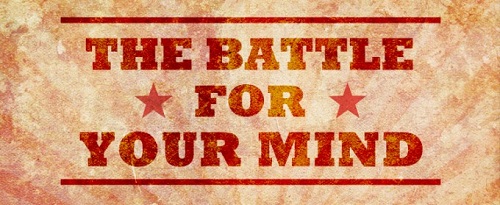
There is a war a war on for your mind! This is serious business and the stakes are high: your very inner self – as well as society as a whole – hangs in the balance.
Most people on ATS are well aware that this mind-war is afoot, and the attempt to understand it is what brought most of us here in the first place. Yet even so, the vast majority of people lack the tools to fully understand what is going on. To get a proper grasp, we need to step back and re-examine the way we think, learning to see many things we take for granted in a whole new light.
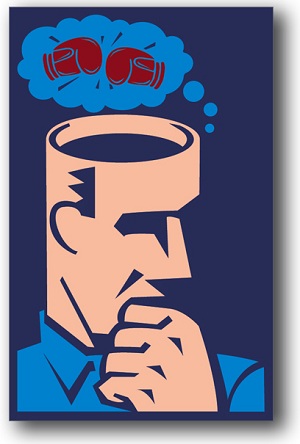
The key to unlocking the secret mind-war lies in a strain of philosophy known as post-Marxism. The insights of the post-Marxist thinkers have been mostly suppressed and ignored in general society. Because post-Marxism has been marginalized, very few know how to even approach the mind-war or ask the right questions to begin with. Today, knowledge of post-Marxism is almost exclusively the province of hardcore professional communist vanguardists such as myself, and perhaps a handful of dry-as-chalkdust academics kept safely out of the way in musty library stacks. TPTB want it this way, rest assured!

This thread will give you a quick and dirty crash-course in post-Marxist philosophy, as formulated by its major thinkers and theorists. Hopefully it will give you the tools to begin asking the right questions -- and to take back your mind at last. You don’t need to be a leftist like me to benefit from the insights of the post-Marxists. Because these thinkers have been the only ones to ask the right questions about culture, media, and the war for your mind, people of every ideology can benefit from studying them.
Ready? Let’s get started!
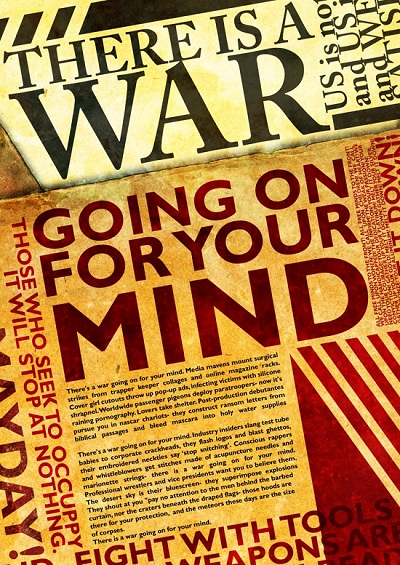
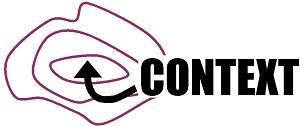
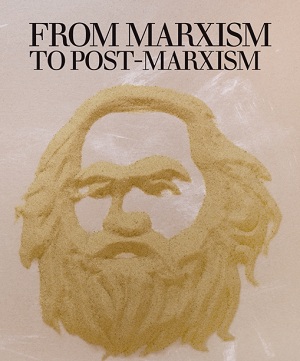
Before we begin to look at post-Marxism, we need a wider context for our discussion. Post-Marxism, as the name implies, came out of Marxism as originally conceived, or what is sometimes called “classical Marxism.” Let’s take a few moments to get our bearings.
The early days
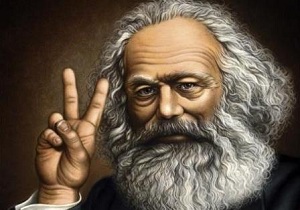
Marxism is, of course, the brainchild of Karl Marx (1818-1883), a German thinker who ended his days in relative poverty and obscurity in London. During his life, his works (chief among them the Communist Manifesto and Das Kapital) had limited impact, although he did achieve some influence among the members of the First and Second Internationals, which were societies of left-leaning workers formed in the mid-19th century. The failed 1871 revolt of the Paris Commune saw the first attempt to put socialist ideas into practice, but it wasn’t until the 1917 Russian Revolution that the world really began to accept that Marxism was a force to be reckoned with.
Marxism-Leninism
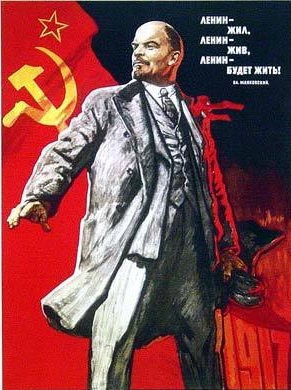
Marx’s original theories were further developed by V.I. Lenin, the leader of the Russian Revolution, resulting in “Marxism-Leninism.” Lenin, unlike Marx, had to deal with the practical realities of revolution, and this shaped his philosophy. The Leninist version of Marxism put stress on developing a professional revolutionary class, or “Vanguard” (one example: yours truly) that would be wholly devoted to the struggle. Lenin also developed the idea of global imperialism as the final stage of capitalism. Lenin’s rule in Russia was followed by that of Stalin, who achieved a powerful dictatorship that many saw as a betrayal of the fundamental ideals of Communism. Stalinism was characterized by the elimination of democratic tendencies and the establishment of strong centralized control.
Third-World Marxism

As communism spread across the globe in the 20th century, it underwent further mutations in the third world. Figures like Mao, Castro, Ho Chi Minh, Che Guevara, and others are associated with so-called “Third-World Marxism,” where theories were changed to reflect the local realities. Originally, Marx had envisioned Communism as being driven by the “proletariat,” or industrial workers. Yet third-world nations had few industrial workers and more peasants, who thinkers like Che and Mao saw as driving Communism in their own nations. In a way, this was an inversion of classical Marxism: Marx believed that peasants were a reactionary/traditionalist force, and that poorer nations would have to go through the process of developing capitalism and an industrial class first before they could achieve Communism. Third-World Marxism sought to skip the step of capitalist development altogether—something Marx would probably have disagreed with. Third-world Marxist movements also tended to be strongly nationalistic in flavor.
From a classical Marxist perspective, then, the ideas of thinkers like Mao might be criticized as being mere “revolt” overlaid with superficial Marxist symbolism, rather than representing true communism. And yet the Third-World Marxists attained vast success in the 20th century, liberating hundreds of millions and in many ways becoming the true face of global communism.
…and finally, onward to post-Marxism
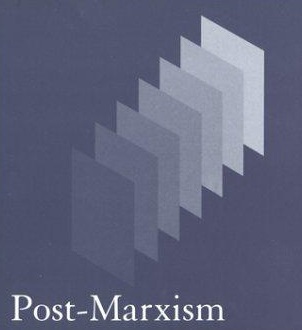
By the middle of the 20th century, classical Marxism no longer seemed to be viable. The forms of Communism that had been successful were the Soviet-style dictatorship of Stalin and post-Stalin leaders in the USSR, or the Third-World Marxism in China and other nations. Neither of these strains could be said to be “purely” Marxist. What went wrong with Marx’s original theories?
Marx was a believer in economic determinism. – the view that all of human life is driven by economics and economics alone. He also believed that the revolution was inevitable. But the evidence did not support these articles of faith. In the developed world, the middle class had grown wealthier and wealthier. Marx did not foresee the way trade unions, social programs, and other compromises between the classes would decrease the oppression of the poor, removing much of the impetus to rebellion. Meanwhile in the third world, Communism had flourished, but not in the way Marx had envisioned. Clearly a re-thinking of classical Marxism was called for. The thinkers who took on this task became known later as the post-Marxists. Although the actual definition of who is and isn’t a post-Marxist is open to debate, we will look at some of the more important figures, ideas, and movements below that either are post-Marxist or relate to post-Marxism.
And now for some specifics.
Antonio Gramsci (1891-1937)
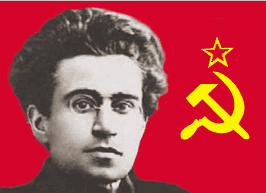
Gramsci was an Italian Marxist who wrote most of his work in prison, after being put there by Mussolini in 1926. Gramsci wrestled with the question of why the Italian working class supported fascism rather than communism, despite the fact that it was not to their benefit to do so.
Gramsci’s key insight involved the relationship between the so-called substructure and the superstructure of society. The former term is Marxist lingo for economic activity, while the latter is used to describe other basic institutions and features of society: religion, culture, law, and so on. For Marx, the economic substructure is the all-important foundation of society, while the superstructure merely reflects what happens on the economic level. In other words, to a classical Marxist, the economy defines culture, law, religion, etc.— but not the other way around. This view is called economic determinism.
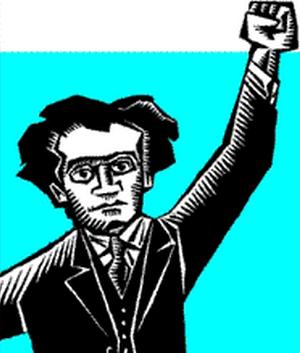
Gramsci realized that Marx’s economic determinism was flawed, and that society is a two-way street: economics may impact the superstructure, but the superstructure can also impact economics. Revolutionary change can come from altering the superstructure of a society as well as from changing its economic relationships.
Culture, ideology, and hegemony
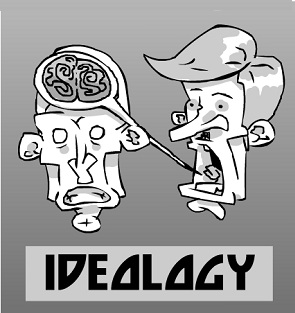
When Gramsci and others began to probe into the superstructure a bit more, some important concepts emerged. These were not necessarily new concepts, but the way they would be understood by post-Marxists was new. In particular, Gramsci understood the process by which TPTB controls society in a kind of three-step way. TPTB uses hegemony to transform ideology into culture. Let’s look at these three terms.
Antonio Gramsci (1891-1937)

Gramsci was an Italian Marxist who wrote most of his work in prison, after being put there by Mussolini in 1926. Gramsci wrestled with the question of why the Italian working class supported fascism rather than communism, despite the fact that it was not to their benefit to do so.
Gramsci’s key insight involved the relationship between the so-called substructure and the superstructure of society. The former term is Marxist lingo for economic activity, while the latter is used to describe other basic institutions and features of society: religion, culture, law, and so on. For Marx, the economic substructure is the all-important foundation of society, while the superstructure merely reflects what happens on the economic level. In other words, to a classical Marxist, the economy defines culture, law, religion, etc.— but not the other way around. This view is called economic determinism.

Gramsci realized that Marx’s economic determinism was flawed, and that society is a two-way street: economics may impact the superstructure, but the superstructure can also impact economics. Revolutionary change can come from altering the superstructure of a society as well as from changing its economic relationships.
Culture, ideology, and hegemony

When Gramsci and others began to probe into the superstructure a bit more, some important concepts emerged. These were not necessarily new concepts, but the way they would be understood by post-Marxists was new. In particular, Gramsci understood the process by which TPTB controls society in a kind of three-step way. TPTB uses hegemony to transform ideology into culture. Let’s look at these three terms.
- Ideology: This is how the oppressors control the oppressed, whatever the philosophy by which control is exercised. TPTB use ideology to achieve
what Gramsci called spontaneous consent among the masses. Spontaneous consent means what it sounds like: Agreeing spontaneously, or
automatically, with whatever TPTB want you to agree with. When the majority of society can be coerced to agree unthinkingly with TPTB’s ideology,
consensus is achieved. Ultimately, ideology is a tool for enforcing a form of consensus that benefits TPTB.
- Hegemony: Hegemony is used to transform ideology (see above) into culture. Hegemony changes over time, and it is a product of a kind of constant
“negotiation” between TPTB and the masses. TPTB try to instill a kind of “picture of life” in terms of what people take for granted, without
even thinking much about at all. Moral values, political values, and “common sense” are all established in a way that benefits TPTB. When
necessary, violence can be used against rare individuals or groups that refuse to toe the line, but overall, at least in the advanced world, violence
isn’t usually necessary. Hegemony is established mostly by manipulating what people take for granted, every day.
- Culture is the general “world view” established by hegemony. Culture may seem natural, eternal, or unchanging, but actually it is designed to
protect TPTB and funnel more money and power their way. In the old days, the Church and high culture were the primary ways of transforming ideology
through hegemony into culture, but Gramsci recognized that the power of these institutions was fading in the 20th century. He (and other thinkers, who
we will look at later) understood that the MEDIA was the way TBTB now establish cultural norms to establish their control over society. The MEDIA is
how attitudes and perspectives underlying everyday “common sense” are enforced.

Gramsci’s brilliant insight – about the power of the MEDIA – was the foundation for the later post-Marxist thinkers we will look at next : Names that include the members of the Frankfurt School, Michel Foucault, Louis Althusser, Jacques Derrida, Herbert Marcuse, and other various post-Marxist philosophers labeled “postmodern” or “post structuralist.”
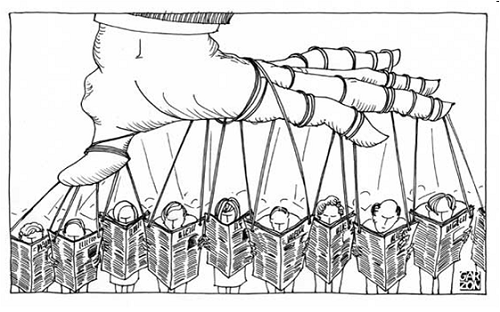
Now It’s time for your loyal but now-sleepy cadre to brush her teeth and put on her pajamas, so we will look at those exotic names and terms when I will put up my next post tomorrow. Please talk amongst yourselves or feel free to ask questions. Stay tuned for the next installment in this thread, comrades, and thanks for reading!
Commander Ashley Hill
Ulrike Meinhof Information Warfare Battalion


I concur, very interesting and informative. I will be looking forward to future posts, thanks.
I'm on the edge of my seat. I will definitely be attending tomorrow's class.
By the way, very professional writing style. Thanks for that alone....
By the way, very professional writing style. Thanks for that alone....
That was a brilliant read, thanks! Have been interested in this stuff for a while but never too sure if it'd really work so didn't pursue it much, but
still good to learn more of either way. Am also interested in Derrida's idea of deconstruction quite a lot so looking forward to what you add about
him.
I also think there's a few people high in power and/or of influence that might be pushing these types of ideas, but would have to do more research to speak about that clearly.
The part about consensus was the bit that got me most there too, as I believe most of our reality is basically shaped by this, and is the one thing that has to change by certain degrees for any real and lasting effects to take place. Might make a thread about that in the near future, but too busy with fiction for the time being.
S&F(a communist one of course!) anyway, and thanks again.
I also think there's a few people high in power and/or of influence that might be pushing these types of ideas, but would have to do more research to speak about that clearly.
The part about consensus was the bit that got me most there too, as I believe most of our reality is basically shaped by this, and is the one thing that has to change by certain degrees for any real and lasting effects to take place. Might make a thread about that in the near future, but too busy with fiction for the time being.
S&F(a communist one of course!) anyway, and thanks again.
edit on 8-4-2012 by robhines because: added
Hello Comrades!
Thank you for your warm replies. Unfortunately I was distracted by family obligations related to an archaic holiday celebrating the alleged resurrection of a man nailed to a stick some 2,000 years ago. Although I have respect for said individual as a kind of "natual primitive communist," based on the way he seems to have lived, I cannot say I support the atavisitic rigamarole and ritual that has developed around his legacy. Opiate of the people, and all that. Nevertheless, even a commie like me has to do family stuff once in a while. So, the upshot of all this is that I was unable to complete the second half of this as planned. Excuses, excuses. However, I pledge to do so in the next 24-48 hours at the latest. So stay tuned!
-Ashley
Thank you for your warm replies. Unfortunately I was distracted by family obligations related to an archaic holiday celebrating the alleged resurrection of a man nailed to a stick some 2,000 years ago. Although I have respect for said individual as a kind of "natual primitive communist," based on the way he seems to have lived, I cannot say I support the atavisitic rigamarole and ritual that has developed around his legacy. Opiate of the people, and all that. Nevertheless, even a commie like me has to do family stuff once in a while. So, the upshot of all this is that I was unable to complete the second half of this as planned. Excuses, excuses. However, I pledge to do so in the next 24-48 hours at the latest. So stay tuned!
-Ashley
edit on 4/9/2012 by Leftist because: (no reason given)
Originally posted by Leftist
who's hand are we ultimately held up by? and what's stopping people from using their own?
Originally posted by yourmaker
who's hand are we ultimately held up by?
Ahhh...the 16-trillion-dollar (bailout) question!
Who are "TPTB"?
Different people will have different answers. A strict communist would have a different perspective on the matter than, say, some of the libertarians or rightwingers who populate this site. It's an open question in a way, and one I am content to leave open...at least for now, and at least in this thread.
One of the great things about post-Marxist theory, as I noted in the first post, is that even non-leftists can use the lessons and tools it provides to fight TPTB. So even if my libertarian/reactionary friends reading this stand opposed to my communist ideals and goals, it is my hope that they, too, will find something of value in the lessons of the post-Marxist thinkers.
...and what's stopping people from using their own?
Nothing but fear and ignorance!
My intention in starting this thread was to fight the latter factor. It's up to each of you to do what you can within yourselves to fight the former!
Power to the people, right on!
edit on 4/9/2012 by Leftist because: (no reason given)
Originally posted by yourmaker
who's hand are we ultimately held up by?
The hand is the PTBs collective hand.
Originally posted by yourmaker
and what's stopping people from using their own?
Fear and Doubt.
You can keep changing the dress and lipstick color on this crap but it is still crap. The bottom line here is for this to work in any form the fruits
of peoples labors must be stolen from them against their will and disbursed to those who did not work for those fruits! If there was any merit to this
it would have been established voluntarily. It has not because people have an inherent resistance to having their property they worked for and earned
stolen from them. People have a right to do what they please with the fruits of their labors whether they are charitable with it or not. No one has a
right to take it from them without their consent.
Your tripe is nothing more then trying to obfuscate these facts with lots of BS!
Liberating hundreds of millions? Yea liberated them from their physical bodies... Ah I think you need to get your facts straight...More like murdered over 50 million people!
Your tripe is nothing more then trying to obfuscate these facts with lots of BS!
"From a classical Marxist perspective, then, the ideas of thinkers like Mao might be criticized as being mere “revolt” overlaid with superficial Marxist symbolism, rather than representing true communism. And yet the Third-World Marxists attained vast success in the 20th century, liberating hundreds of millions and in many ways becoming the true face of global communism."
Liberating hundreds of millions? Yea liberated them from their physical bodies... Ah I think you need to get your facts straight...More like murdered over 50 million people!
edit on 9-4-2012 by hawkiye because: (no reason given)
reply to post by Leftist
I believe leaving a question such as who are "the powers that be" open only invites the very problem that having "the powers that be" causes. In the strictest sense of law and the creation of government, someone holds the inherent political power. Under a divine right doctrine, it would be the monarch who claims to be the holder of inherent political power. However, Lord Acton once observed, and I believe correctly so, that power corrupts and absolute power corrupts absolutely. On a scientific level, we can test this postulate by taking a battery and over charging it. If too much power is transferred to the battery, the battery cannot contain this power and the resultant consequence is a corruption of power.
The same holds true for government. The more aggregated and centralized power is in government the more assured one can be of corruption. Thus, under natural law, it is the People who hold the inherent political power, evenly spreading that power amongst us all is the surest way of using the political power effectively.
In terms versus "Post Marxism", and if there is such a thing it is arguable there is most certainly a "Post Capitalism", I tend to view it more as Collectivism versus Individualism. I can state that it is the People who hold the inherent political power, and those whose bias leans towards Collectivism will interpret this to mean that the People collectively hold inherent political power, but the Invidualist will interpret this as being all Individuals hold this inherent political power.
Both are true, but when it comes to this so called "powers that be" , it is evident that any Individual does indeed hold inherent political power - at least in the U.S. - when a law enforcement officer asks permission to search your person or property , even though they are expressly forbidden to do so by Constitution without a warrant or reasonable cause. States will ignore their own constitutions - those that prohibit the state from using the fact that certain rights have been enumerated and using this to deny and/or disparage other rights retained by the People - and assert that "driving is a privilege and not a right", and will word things in a way to convince individuals they are obligated to register their vehicle and obtain a license. However, when individuals acquiesce to this blatant disregard for constitutional restraint, the state will insist on obtaining a signature from the Individual. The state needs that signature, or that individuals permission to side step constitutional restraint.
Who are the Powers that Be? You are Ashley! I Am! He is and she is and he over there, and her and her and he and her, and he and she and him and her and on and on and on....
I believe leaving a question such as who are "the powers that be" open only invites the very problem that having "the powers that be" causes. In the strictest sense of law and the creation of government, someone holds the inherent political power. Under a divine right doctrine, it would be the monarch who claims to be the holder of inherent political power. However, Lord Acton once observed, and I believe correctly so, that power corrupts and absolute power corrupts absolutely. On a scientific level, we can test this postulate by taking a battery and over charging it. If too much power is transferred to the battery, the battery cannot contain this power and the resultant consequence is a corruption of power.
The same holds true for government. The more aggregated and centralized power is in government the more assured one can be of corruption. Thus, under natural law, it is the People who hold the inherent political power, evenly spreading that power amongst us all is the surest way of using the political power effectively.
In terms versus "Post Marxism", and if there is such a thing it is arguable there is most certainly a "Post Capitalism", I tend to view it more as Collectivism versus Individualism. I can state that it is the People who hold the inherent political power, and those whose bias leans towards Collectivism will interpret this to mean that the People collectively hold inherent political power, but the Invidualist will interpret this as being all Individuals hold this inherent political power.
Both are true, but when it comes to this so called "powers that be" , it is evident that any Individual does indeed hold inherent political power - at least in the U.S. - when a law enforcement officer asks permission to search your person or property , even though they are expressly forbidden to do so by Constitution without a warrant or reasonable cause. States will ignore their own constitutions - those that prohibit the state from using the fact that certain rights have been enumerated and using this to deny and/or disparage other rights retained by the People - and assert that "driving is a privilege and not a right", and will word things in a way to convince individuals they are obligated to register their vehicle and obtain a license. However, when individuals acquiesce to this blatant disregard for constitutional restraint, the state will insist on obtaining a signature from the Individual. The state needs that signature, or that individuals permission to side step constitutional restraint.
Who are the Powers that Be? You are Ashley! I Am! He is and she is and he over there, and her and her and he and her, and he and she and him and her and on and on and on....
To echo the sentiments of others that have weighed in, I take a dim view of communism, and an even dimmer view of postmodernism/post-Marxism. However,
as somebody who has been a member for some years, I must admit: for a poster who has been here less than a month, your ATS scores (the numbers below
your avatar) are nothing short of astonishing. Clearly you have decent equipment upstairs. A pity you choose to aim it in a misguided direction.
Here is wisdom - Let him who hath understanding reckon: The most potent, most powerful ideology takes a tiny pinch from the left and substantially more from the right. Talk about suppressed philosophies! It is a subtle cocktail, demanding exactly the right balance and the right ingredients from each side of the spectrum – so much so that the slightest deviation from the correct proportions and the correct recipe ends in disaster. The time for this ultimate philosophy is both past and still to come. Some of you – a very, very few – may have some inkling of what I’m talking about. Thus, there are a few valuable (vital, even) gleanings to be found among the vast garbage-pile that is leftist thought. So perhaps your thread is not totally without value.
Be this as it may, you have the rare and precious talent of being able to boil the complex down into the essential. I’m enjoying your analysis. Please, by all means, continue.
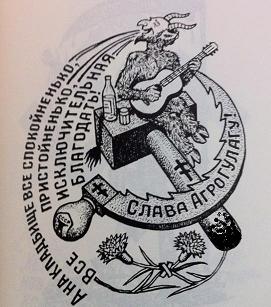
(Translation (image above): "But in the graveyard, everything is peaceful, everything is proper, absolute bliss!")
Here is wisdom - Let him who hath understanding reckon: The most potent, most powerful ideology takes a tiny pinch from the left and substantially more from the right. Talk about suppressed philosophies! It is a subtle cocktail, demanding exactly the right balance and the right ingredients from each side of the spectrum – so much so that the slightest deviation from the correct proportions and the correct recipe ends in disaster. The time for this ultimate philosophy is both past and still to come. Some of you – a very, very few – may have some inkling of what I’m talking about. Thus, there are a few valuable (vital, even) gleanings to be found among the vast garbage-pile that is leftist thought. So perhaps your thread is not totally without value.
Be this as it may, you have the rare and precious talent of being able to boil the complex down into the essential. I’m enjoying your analysis. Please, by all means, continue.

(Translation (image above): "But in the graveyard, everything is peaceful, everything is proper, absolute bliss!")
edit on 4/9/2012 by silent thunder because: (no reason given)
reply to post by silent thunder
I gave you a star for the first two paragraphs of your post however I disagree on the last paragraph. He has boiled down nothing we know very little of how he defines the communism he claims to be a professional foot soldier of. He has never laid out his Ideal society and how it is achieved. He makes long wordy posts that say very little if anything but quotes different purveyors of Marxism communism etc. He is fishing for some kind of foothold of acceptance by baffling them with BS as the saying goes.
I gave you a star for the first two paragraphs of your post however I disagree on the last paragraph. He has boiled down nothing we know very little of how he defines the communism he claims to be a professional foot soldier of. He has never laid out his Ideal society and how it is achieved. He makes long wordy posts that say very little if anything but quotes different purveyors of Marxism communism etc. He is fishing for some kind of foothold of acceptance by baffling them with BS as the saying goes.
Oh noes! The grumpy old men have invaded my thread! Looks like we have a reactionary, a fuddy-duddy, and a kleptocrat, in that order! Just teasing,
boys. All are welcome here, and all input is appreciated. No hard feelings.
There are many points I could respond to here, but for now I will pick one each.
Hawkyie: Your passion and fury makes you a formidable foe! I welcome the challenge. Mao did not "kill" howevermany million the right are claiming these days. 90% of those deaths come from the Great Leap Forward, which resulted in a famine because local cadres did not report statistics to the center properly. Mao had no idea what was going on, and if he had known, he would have put a stop to it. It was a bureaucratic foul-up, something that could have happened in the capitalist west jut as easily. Might as well blame Bush for howevermany million died during his term due to lack of decent health care.
Jean-Paul: I like your style. You are a good mind. But much of your analysis rests on theory rather than reality. For example, the police don have a right to do this or that on paper...but we all know it goes on.
Silent: my what a sly one you are! That's quite a picture there. Are you an oligarch yourself or just one of their tools? Don't answer, I don't want to know. Joke. Your kind words aside, the left has far more than a few "gleanings" and is anything but a garbage-heap. Stick around, perhaps you'll see for yourself....
There are many points I could respond to here, but for now I will pick one each.
Hawkyie: Your passion and fury makes you a formidable foe! I welcome the challenge. Mao did not "kill" howevermany million the right are claiming these days. 90% of those deaths come from the Great Leap Forward, which resulted in a famine because local cadres did not report statistics to the center properly. Mao had no idea what was going on, and if he had known, he would have put a stop to it. It was a bureaucratic foul-up, something that could have happened in the capitalist west jut as easily. Might as well blame Bush for howevermany million died during his term due to lack of decent health care.
Jean-Paul: I like your style. You are a good mind. But much of your analysis rests on theory rather than reality. For example, the police don have a right to do this or that on paper...but we all know it goes on.
Silent: my what a sly one you are! That's quite a picture there. Are you an oligarch yourself or just one of their tools? Don't answer, I don't want to know. Joke. Your kind words aside, the left has far more than a few "gleanings" and is anything but a garbage-heap. Stick around, perhaps you'll see for yourself....
reply to post by Leftist
There are murders across the globe, but this does not in anyway diminish the universality of the right to life. There is censorship across the globe, but this does not in anyway diminish the universality of the right to express a thought. Gravity places certain parameters on those subject to it, and for humans it means that people lacking proper apparatuses to facilitate jumping off of buildings, bridges, or mountains will plummet to their almost certain death, but this does not stop some people from doing so anyway.
One could argue that because people disobey the laws of gravity that these laws are theory rather than reality, or that because there are murderers the right to life is merely a theory rather than reality, but such arguments would themselves not even qualify as theory and would only be postulates or hypothesis. Theories are testable. If I posit that all creatures, great and small, have the right to life and because of this they have a right to defend their lives, we can begin testing this theory by observing life and how it behaves when that life is threatened. We can observe creatures, great and small, and look for signs of defense when their lives are threatened.
Is it merely theory, when we point to the observable and state: A rose does not need a Congress of roses in order to derive the right to keep and bear thorns? Is it merely theory to state: A porcupine does not need a decree from a king in order to derive the right to keep and bear needles, and is it merely theory to state that a skunk does not need permission from the state in order to derive the right to spew its stink? We can readily observe these creatures with their methods of defense and we can reasonably state that this is self evident.
So, what about the right to ownership of property? Is this merely theory, or is it reality? The Collectivists, those who believe that property is communal, and there even the reactionaries among them that would argue that all property is theft, and perhaps that damned spider that bit me in my sleep last night felt that I had stolen his property and acted accordingly, and if ever I see that spider, perhaps after squashing it like bug, I can argue that spider was trespassing, but make no mistakes about it, the disagreement between me and this spider is a property dispute.
This is the same between Marxists - Classical and Post - and Capitalists, their fundamental disagreement is over property. Because of this self evident dispute, it is fairly disingenuous for a Communist to dismiss a Capitalists point of view as being theory rather than reality, and vice versa. The reality is that there are thieves everywhere. Racoons are notorious thieves, as are other scavengers, including humans, and of course among humans, there are pirates who just love to plunder.
In order to justify a system where wealth redistribution exists, it becomes necessary to dismiss the rights of the individual, just as you have now done. The modern communist can politely smile and speak to unalienable rights and soothingly say these are nice ideas but they are really just theory, but they do so because the must. It would not do to acknowledge that individuals have the right to ownership of property if the system created reviles that individual ownership. Instead, the Collectivist must make plunder legal and even the sweetest among them will use this legality of plunder to their own ends.
The joke is old, but it bears posting here:
The difference between capitalism and communism is that in capitalism man exploits man, and in communism it is the other way around.
Die Bedrohungen sind Rede, sondern sind auch umsetzbare
Jean-Paul: I like your style. You are a good mind. But much of your analysis rests on theory rather than reality. For example, the police don have a right to do this or that on paper...but we all know it goes on.
There are murders across the globe, but this does not in anyway diminish the universality of the right to life. There is censorship across the globe, but this does not in anyway diminish the universality of the right to express a thought. Gravity places certain parameters on those subject to it, and for humans it means that people lacking proper apparatuses to facilitate jumping off of buildings, bridges, or mountains will plummet to their almost certain death, but this does not stop some people from doing so anyway.
One could argue that because people disobey the laws of gravity that these laws are theory rather than reality, or that because there are murderers the right to life is merely a theory rather than reality, but such arguments would themselves not even qualify as theory and would only be postulates or hypothesis. Theories are testable. If I posit that all creatures, great and small, have the right to life and because of this they have a right to defend their lives, we can begin testing this theory by observing life and how it behaves when that life is threatened. We can observe creatures, great and small, and look for signs of defense when their lives are threatened.
Is it merely theory, when we point to the observable and state: A rose does not need a Congress of roses in order to derive the right to keep and bear thorns? Is it merely theory to state: A porcupine does not need a decree from a king in order to derive the right to keep and bear needles, and is it merely theory to state that a skunk does not need permission from the state in order to derive the right to spew its stink? We can readily observe these creatures with their methods of defense and we can reasonably state that this is self evident.
So, what about the right to ownership of property? Is this merely theory, or is it reality? The Collectivists, those who believe that property is communal, and there even the reactionaries among them that would argue that all property is theft, and perhaps that damned spider that bit me in my sleep last night felt that I had stolen his property and acted accordingly, and if ever I see that spider, perhaps after squashing it like bug, I can argue that spider was trespassing, but make no mistakes about it, the disagreement between me and this spider is a property dispute.
This is the same between Marxists - Classical and Post - and Capitalists, their fundamental disagreement is over property. Because of this self evident dispute, it is fairly disingenuous for a Communist to dismiss a Capitalists point of view as being theory rather than reality, and vice versa. The reality is that there are thieves everywhere. Racoons are notorious thieves, as are other scavengers, including humans, and of course among humans, there are pirates who just love to plunder.
In order to justify a system where wealth redistribution exists, it becomes necessary to dismiss the rights of the individual, just as you have now done. The modern communist can politely smile and speak to unalienable rights and soothingly say these are nice ideas but they are really just theory, but they do so because the must. It would not do to acknowledge that individuals have the right to ownership of property if the system created reviles that individual ownership. Instead, the Collectivist must make plunder legal and even the sweetest among them will use this legality of plunder to their own ends.
The joke is old, but it bears posting here:
The difference between capitalism and communism is that in capitalism man exploits man, and in communism it is the other way around.
Die Bedrohungen sind Rede, sondern sind auch umsetzbare
edit on 9-4-2012 by Jean Paul Zodeaux because: (no reason given)
Picking up from where we left off on our tour of post-Marxism…
The Frankfurt School

The next big name to look at is the Institute for Social Research, which is more popularly known as “the Frankfurt School.” Founded in 1923 in Frankfurt (duh), this group of intellectuals moved to New York in 1933. Notable names associated with this organization include Herbert Marcuse, Max Horkheimer, Jurgen Habermas, T.W. Adorno, and Walter Benjamin.
Like Gramsci, the Frankfurt School recognized the central role of the media in imposing social control. Shocked by the horrors of the 20th century – the world wars, holocaust, atomic bombing of Japan, and cold-war missile race in particular – they felt that Marxism needed to be reworked to explain how such things could take place with the consent of the workers, who didn’t rebel as Marx predicted they would. The Frankfurt School also sought to integrate ideas from Freudian psychology into political theory, and to create more a unified field of study that would blend lessons from the different social sciences and utilize more advanced forms of analysis and research. The result was a whole new branch of thought that became known as critical theory.
The Frankfurt School members noted that exposure to mass media destroys individualism and breeds mass conformity. A noteworthy concept to emerge was the commodification of culture, i.e., the way new communications technologies (from TV to radio and telephones) was turning mass culture into something that could be bought and sold, in contrast to the more elitist high culture of years past. The fusion of mass communication technologies and cultures created new avenues for capitalist manipulation of the public – something Marx could not have forseen in his time.

it is worth noting that the right-wing nutbag Anders Behring Breivik, who slaughtered children and others in Norway last year, devoted much of his “manifesto” to criticizing the Frankfurt School. He saw them as the central source of most of the left-wing ideas he hated – a grisly reminder that even some on the far right recognize the power and influence of this group of thinkers, even if their responses to these ideas are sick and evil.

Louis Althusser (1918-1990)

This French figure is notable for his work criticizing essentialism, both in classical Marxism and philosophy in general. Essentialism is a style of thought that seeks to explain phenomena using a single underlying cause. For example, Marx saw everything as being shaped fundamentally by economics (his “economic determinism”, which we looked at above). Althusser recognized that reality is complex and that phenomena are rarely (if ever) the result of a single monolithic cause, such as “economics” or any other simple easy answer. Humans as well as situations and phenomena are systems of assocations made up of many factors, rather than a single nugget-like core.
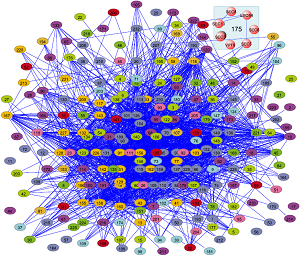
In addition to criticizing Marx’s fixation on economics, Althusser also spoke against Marx’s humanism – that is to say, Marx’s belief in a kind of monolithic and unchanging “human nature” that would drive social change. For Althusser, there was no such thing as a fundamental, fixed “human nature.” Instead, people are the product of various structures in society: education, religion, law, and (of course) mass media. Althusser spoke of the ideological state apparatus (ISA), a repressive tool of TPTB which uses institutions like education and media to mold minds, hearts, and actions. The ISA makes people slaves who think they are free by limiting their very perceptions so that they can only see the world in a certain way – a way that benefits TPTB. Without the ability to go beyond these limited ways of seeing, people will be trapped.
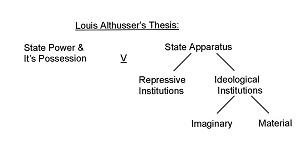
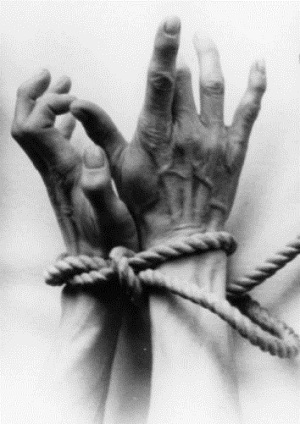
Next up: Postmodernism. To be continued…
The Frankfurt School

The next big name to look at is the Institute for Social Research, which is more popularly known as “the Frankfurt School.” Founded in 1923 in Frankfurt (duh), this group of intellectuals moved to New York in 1933. Notable names associated with this organization include Herbert Marcuse, Max Horkheimer, Jurgen Habermas, T.W. Adorno, and Walter Benjamin.
Like Gramsci, the Frankfurt School recognized the central role of the media in imposing social control. Shocked by the horrors of the 20th century – the world wars, holocaust, atomic bombing of Japan, and cold-war missile race in particular – they felt that Marxism needed to be reworked to explain how such things could take place with the consent of the workers, who didn’t rebel as Marx predicted they would. The Frankfurt School also sought to integrate ideas from Freudian psychology into political theory, and to create more a unified field of study that would blend lessons from the different social sciences and utilize more advanced forms of analysis and research. The result was a whole new branch of thought that became known as critical theory.
The Frankfurt School members noted that exposure to mass media destroys individualism and breeds mass conformity. A noteworthy concept to emerge was the commodification of culture, i.e., the way new communications technologies (from TV to radio and telephones) was turning mass culture into something that could be bought and sold, in contrast to the more elitist high culture of years past. The fusion of mass communication technologies and cultures created new avenues for capitalist manipulation of the public – something Marx could not have forseen in his time.

it is worth noting that the right-wing nutbag Anders Behring Breivik, who slaughtered children and others in Norway last year, devoted much of his “manifesto” to criticizing the Frankfurt School. He saw them as the central source of most of the left-wing ideas he hated – a grisly reminder that even some on the far right recognize the power and influence of this group of thinkers, even if their responses to these ideas are sick and evil.

Louis Althusser (1918-1990)

This French figure is notable for his work criticizing essentialism, both in classical Marxism and philosophy in general. Essentialism is a style of thought that seeks to explain phenomena using a single underlying cause. For example, Marx saw everything as being shaped fundamentally by economics (his “economic determinism”, which we looked at above). Althusser recognized that reality is complex and that phenomena are rarely (if ever) the result of a single monolithic cause, such as “economics” or any other simple easy answer. Humans as well as situations and phenomena are systems of assocations made up of many factors, rather than a single nugget-like core.

In addition to criticizing Marx’s fixation on economics, Althusser also spoke against Marx’s humanism – that is to say, Marx’s belief in a kind of monolithic and unchanging “human nature” that would drive social change. For Althusser, there was no such thing as a fundamental, fixed “human nature.” Instead, people are the product of various structures in society: education, religion, law, and (of course) mass media. Althusser spoke of the ideological state apparatus (ISA), a repressive tool of TPTB which uses institutions like education and media to mold minds, hearts, and actions. The ISA makes people slaves who think they are free by limiting their very perceptions so that they can only see the world in a certain way – a way that benefits TPTB. Without the ability to go beyond these limited ways of seeing, people will be trapped.


Next up: Postmodernism. To be continued…
edit on 4/9/2012 by Leftist because: (no reason given)
reply to post by Jean Paul Zodeaux
Well said JPZ! I love it when someone like Lefist attempts to take on JPZ and gets verbally beat down so eloquently it brings a smile to my face!
The collectivists think that theft and plunder is ok as long as there is a consensus among the thugs doing the stealing.
Oh and LOL! at leftist trying to brush aside millions starving as just a bureaucratic blunder. And of course you singled out one dictator trying to divert attention from the rest. However Psst Leftist I was not talking about that I was talking about those forcefully murdered as dissidents and malcontents after having been forcefully deprived the means of self defense so even if your ridiculous lie were true it is still a strawman and moot point but does bring to light the many more millions on top of the 50+ million who were murdered that died as a direct result of communism/marxism.
Well said JPZ! I love it when someone like Lefist attempts to take on JPZ and gets verbally beat down so eloquently it brings a smile to my face!
The collectivists think that theft and plunder is ok as long as there is a consensus among the thugs doing the stealing.
Oh and LOL! at leftist trying to brush aside millions starving as just a bureaucratic blunder. And of course you singled out one dictator trying to divert attention from the rest. However Psst Leftist I was not talking about that I was talking about those forcefully murdered as dissidents and malcontents after having been forcefully deprived the means of self defense so even if your ridiculous lie were true it is still a strawman and moot point but does bring to light the many more millions on top of the 50+ million who were murdered that died as a direct result of communism/marxism.
new topics
-
Florida man's trip overseas ends in shock over $143,000 T-Mobile phone bill
Social Issues and Civil Unrest: 4 minutes ago -
Former Labour minister Frank Field dies aged 81
People: 2 hours ago -
SETI chief says US has no evidence for alien technology. 'And we never have'
Aliens and UFOs: 3 hours ago -
This is our Story
General Entertainment: 6 hours ago -
President BIDEN Vows to Make Americans Pay More Federal Taxes in 2025 - Political Suicide.
2024 Elections: 8 hours ago -
Ode to Artemis
General Chit Chat: 9 hours ago
top topics
-
University student disciplined after saying veganism is wrong and gender fluidity is stupid
Education and Media: 17 hours ago, 14 flags -
President BIDEN Vows to Make Americans Pay More Federal Taxes in 2025 - Political Suicide.
2024 Elections: 8 hours ago, 12 flags -
Should Biden Replace Harris With AOC On the 2024 Democrat Ticket?
2024 Elections: 15 hours ago, 6 flags -
One Flame Throwing Robot Dog for Christmas Please!
Weaponry: 13 hours ago, 6 flags -
Don't take advantage of people just because it seems easy it will backfire
Rant: 13 hours ago, 4 flags -
Ditching physical money
History: 13 hours ago, 4 flags -
SETI chief says US has no evidence for alien technology. 'And we never have'
Aliens and UFOs: 3 hours ago, 4 flags -
Former Labour minister Frank Field dies aged 81
People: 2 hours ago, 3 flags -
Ode to Artemis
General Chit Chat: 9 hours ago, 3 flags -
This is our Story
General Entertainment: 6 hours ago, 2 flags
active topics
-
Lawsuit Seeks to ‘Ban the Jab’ in Florida
Diseases and Pandemics • 30 • : 320MPH -
University student disciplined after saying veganism is wrong and gender fluidity is stupid
Education and Media • 43 • : Consvoli -
Florida man's trip overseas ends in shock over $143,000 T-Mobile phone bill
Social Issues and Civil Unrest • 0 • : Consvoli -
So this is what Hamas considers 'freedom fighting' ...
War On Terrorism • 244 • : HopeForTheFuture -
"We're All Hamas" Heard at Columbia University Protests
Social Issues and Civil Unrest • 269 • : Vermilion -
Police clash with St George’s Day protesters at central London rally
Social Issues and Civil Unrest • 42 • : ohahhupthera -
Russia Ukraine Update Thread - part 3
World War Three • 5721 • : stu119 -
President BIDEN Vows to Make Americans Pay More Federal Taxes in 2025 - Political Suicide.
2024 Elections • 22 • : CarlLaFong -
Tucker Carlson UFOs are piloted by spiritual entities with bases under the ocean and the ground
Aliens and UFOs • 43 • : Xtrozero -
Thousands Of Young Ukrainian Men Trying To Flee The Country To Avoid Conscription And The War
Other Current Events • 127 • : Consvoli
